Erstellt am: 29. 3. 2014 - 11:53 Uhr
"The Rich Have Got An Upper Hand Over Government"
Reality Check Special
An interview with economist Jeffrey Sachs on saturday 29th of march, 12-13h anf for 7 days on demand.
"In general what has happened is that the rich have got an upper hand over government," star economist Jeffrey Sachs told me when I met him at IAASA’s headquarters at Laxenburg just outside Vienna. "The rich have plenty of places to hide their money, to keep their money tax free and away from the tax collectors and so governments plead poverty, but the world has more money than ever before concentrated at the top."
The sumptuous surroundings for our interview seemed an appropriate location to talk about the infamous "1%". From this old Habsburg palace with its boating lake and gazebos a single privileged family ruled over much of Europe.
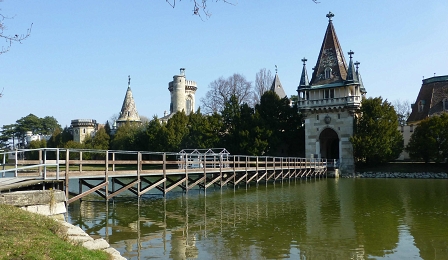
chris cummins
But it was sad to hear Sachs once described by the New York Times as "the most important economist in the world" sounding so world-weary and cynical. I have always thought of him as the ultimate "Yes We Can"-man.
Back in 2005, three years before his compatriot Barack Obama’s first Presidential election campaign, Sachs was telling the world we could eradicate extreme poverty "within a generation".
In his book The End of Poverty he set a deadline of 2025 to achieve that perennially elusive goal - a new global south where it was no longer normal for millions of children to drink dirty water and die from preventable diseases and malnutrition every year. What’s more, he said, it is the duty of the rich West to put in place the policies that could make that happen.
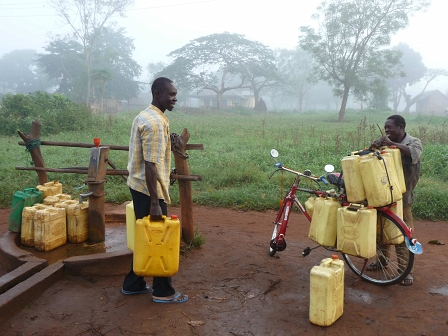
chris cummins
"Once you get your head around development issues and realize how solvable many of them are, there are tremendous things that can be done," he told Mother Jones at the time. "But for decades we just haven't tried to do many of these basic things."
Sachs is a very hands-on intellectual. He has served Director of the UN Millennium Project that oversees the internationally agreed "Millennium Goals" - quantifiable targets in the reduction of extreme poverty, disease, and hunger by the year 2015. He advocates simple solutions such as providing thousands of mosquito nets to tackle malaria and planted crops that are more resistant and have more nutritional value.
He has personally overseen a series of model Millennium Villages in Sub-Saharan Africa, an expensive programme to create guinea pig communities to see of his anti-poverty theories work in practice. He says it has been a great success but the programme has recently been criticised in Nina Munk's The Idealist.
Back in 2005, the year "The End of Poverty" was published, Sachs was busy jet-setting tirelessly as the "Make Poverty History" campaign gathered pace.
Rock-stars Bono and Bob Geldof loudly advocated the same message and grabbed most of the headlines. But Sachs, with his privileged access to the corridors of power, was considered instrumental in pushing poverty eradication to the top of the agenda in Gleneagles that summer. In that windswept Scottish castle, the richest countries made generous promises to forgive Third World debt and strengthen their aid budgets. It was a time of great optimism.
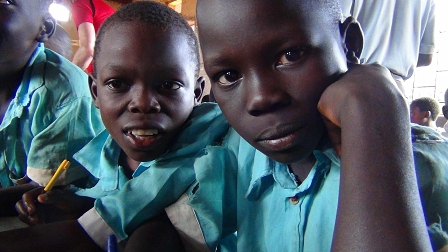
chris cummins
But that was then and this is now. "We certainly saw the energy of the campaign deflated after the financial crisis," he admits. But he says the West cynically used economic problems to slash their overseas development aid support: "many countries were already cutting their budgets before the crash."
He points to the UK as a positive example. London ring-fenced its aid budget to protect it from countries in the way many countries hit by recession ring-fenced only their military spending.
Yet some economists, including Sachs’ former student Dambisa Moyo from Zambia, would argue that by cutting aid the West has done Africa a huge favour. In her book Dead Aid, Moyo argues that aid harms the countries it tries to help:
"The fundamental problem is that the aid industry has become so pervasive that governments abdicate their responsibilities," she told The New Statesman. She thinks investment and business is the only answer and aid has trapped Africa in a prison of dependence.
She also argues that the campaigns led by Bono and Geldof have harmed Africa by emphasising the image of Africa of scary, instable continent full of sickness - a pervading image that Moyo argues has frightened investors away and kept people poor.
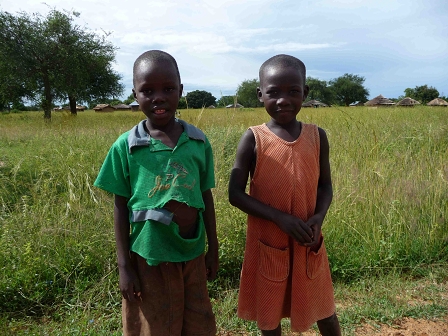
chris cummins
Sachs disagrees; although he concedes that much of the past policies that dictated how and where to dish out aid have been "misguided". He says aid "has to be given professionally, has to be transparent and has to be targeted to basic infrastructure like health, education, safe water and sanitation." He argues that these elements of basic infrastructure are the basic building blocks of economic development.
If it is done right, argues Sachs, and if the local communities are involved in the decision making process, development aid can help to start levelling the playfield for the communities that have been so far left behind by global development.
There are certain places on the planet he argues that have been hampered by"geographical isolation, burden of disease, climate, or soil" and they need a jumpstart to bridge the gap. After all, you can’t start contribute to any economy if you are ill with malaria, hungry or disconnected from the global conversation:
"If you help children to get to school and have electricity and sanitation and perhaps a computer lab when they get to that school, then you are going to help create a generation that is able to be productive in the 21st century."
Then he says, once they're on the first rung of the ladder of development, they'll start climbing just like the rest of the world. It is just that first rung that is tricky.
Sachs feels the reputation of aid has been badly sullied by its use as a weapon of foreign policy by the Pentagon following the invasions of Afghanistan and Iraq where it was seen as a tactic to "win hearts and minds". It is no surprise the cynics have grown in number. But Sachs argues that you can’t just use those drawbacks as an excuse to leave "desperately poor people to their own devices." That, he says, "only leads to death. I am interested in life."
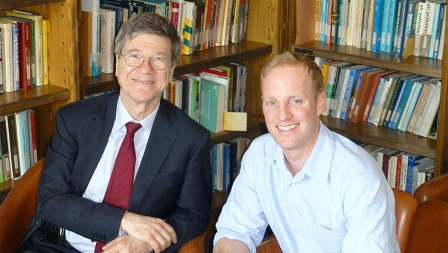
IAASA
Reality Check Special with Jeffrey Sachs
Dieses Element ist nicht mehr verfügbar
The New York Times has described Jeffrey Sachs as "the most important economist in the world", and Time magazine has twice named him as one of the 100 most influential people in the world. A crusader against poverty, he advises United Nations Secretary-General Ban Ki-Moon on the Millennium Development Goals. He has written three bestselling books: "The End of Poverty", "Common Wealth", and "The Prize of Civilization". This Saturday Jeffrey Sachs is FM4’s guest in a Reality Check Special. Listen to the programme after the show via Podcast or on fm4.ORFat/7tage.


